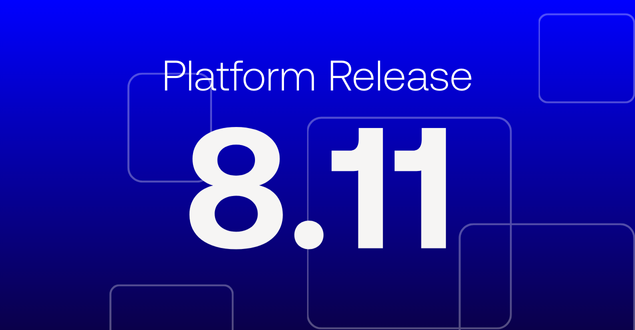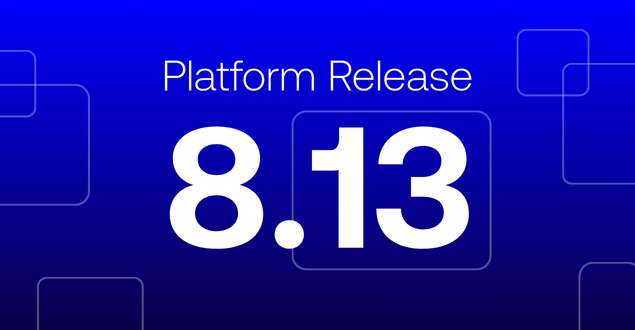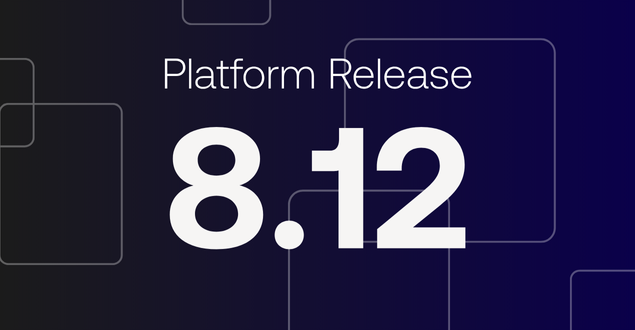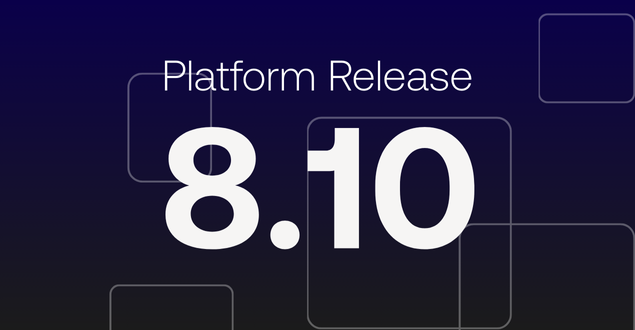Genesis release 8.11
Launches MCP Server for AI integration, transforms reporting and expands bond issuance workflow

Table of Contents
Version 8.11 of the Genesis Application Platform marks a major step forward in controlled AI integration and user empowerment. The release introduces a Model Context Protocol (MCP) Server, a re-engineered Reporting Component, and new roadshow workflow capabilities for the Primary Bond Issuance (PBI) solution.
Together, these updates strengthen the platform’s role as the foundation for secure, scalable, and AI-driven innovation across financial markets.
Model context protocol server: Controlled AI access for financial applications
One of the most exciting developments in version 8.11 is the introduction of the Model Context Protocol (MCP) Server, a secure bridge that allows AI to interact with Genesis applications in a controlled, compliant manner.
MCP is a new industry standard that enables applications to share context with large language models (LLMs) in structured and meaningful ways. The Genesis MCP Server functions much like an API gateway for AI, governing how models interface with Genesis applications.
This capability gives financial institutions a framework to explore AI safely: maintaining predictability, auditability, and compliance at every step.
The Genesis MCP Server reads application metadata and defines how AI agents can access or interact with it. Application owners have full control over permissions and can decide which functions are AI-accessible. All activity through the MCP Server adheres to the same permissions model as the underlying application.
This is an opt-in feature for all applications running on Genesis 8.11 and later, requiring no reconfiguration to activate.
Potential use cases include:
- Conversational interaction with Genesis applications
- Executing multi-step operations across MCP-enabled systems
- Extracting and transforming application data with LLMs (e.g., summarizing or aggregating reports)
Watch the demo video to see how a salesperson uses AI to place client orders via a Genesis OMS.
Re-engineered reporting component: Putting users in control
Reporting has always been core to the Genesis platform, and version 8.11 redefines that experience. The new Reporting Component gives end-users complete control over creating, scheduling, and distributing reports – no developer intervention required.
This update transforms how firms handle reporting changes. Instead of waiting for code modifications, users can now design and deploy reports directly through a modern, intuitive UI. The result is faster response times to evolving business and client requirements.
Reports can range from data-driven spreadsheets for internal use to graphic-rich documents like client invoices, trade confirmations, and portfolio summaries.
Key enhancements include:
- Expanded UI tools: Select data sources, rename fields, apply filters, and manage distribution.
- Scheduling manager: Automate report generation and delivery.
- Dynamic templates: Generate Excel and PDF reports in real time.
- Built-in email distribution: Send reports automatically to predefined recipients.
The Reporting Component integrates seamlessly with other Genesis tools, including Document Management, Document Generation, and Notifications & Alerts, to provide a complete reporting and distribution ecosystem.
See the demo video for how easily an end-user can create, customize, and automate a report in Genesis 8.11.
Solution update: Full deal lifecycle in Primary Bond Issuance
Version 8.11 expands the Genesis Primary Bond Issuance (PBI) solution to include roadshow workflow support, completing coverage of the entire bond deal lifecycle – from roadshow to pricing.
With this enhancement, asset managers can track deals during the roadshow stage, evaluate opportunities early, and prepare orders before official announcements.
New capabilities include:
- Roadshow entry: Record deal terms and updates before announcement.
- Automated alerts: Notify investment teams about upcoming deals.
- Preloaded orders: Enter orders directly into the asset manager’s OMS.
When a deal is announced, PBI automatically merges roadshow data with live issue feeds from sources like DirectBooks, S&P (Ipreo), and others. Orders created earlier can be transmitted, amended, or canceled in line with the latest information.
Watch the demo video to see how roadshow tracking accelerates deal preparation and collaboration in PBI.
Platform spotlight: Document generation component
The Document Generation Component simplifies how firms produce professional documents from application data. Integrated directly within the Genesis platform, it enables teams to create high-quality outputs in formats including TXT, HTML, XLSX, and PDF.
Highlights include:
- Dynamic document generation using customizable templates
- Automated data merging across multiple sources
- Batch document processing for high-volume operations
- Full support for common file types, including DOCX and PDF
Documents and templates can be managed through the Document Management Component, while Notifications & Alerts can distribute final outputs automatically.
This seamless integration ensures firms maintain accuracy, consistency, and professional presentation across all client and operational documents.
Explore What’s New in Genesis 8.11
Version 8.11 continues the Genesis mission: empowering financial institutions to innovate faster, work smarter, and deploy AI responsibly. With a secure MCP framework, re-engineered reporting, and lifecycle coverage for bond issuance, this release sets a new standard for composable, AI-enhanced development.
Ready to experience the power of Genesis 8.11?
Request a demo or free trial today to see how the Genesis Application Platform is redefining AI-enabled innovation for financial markets.






